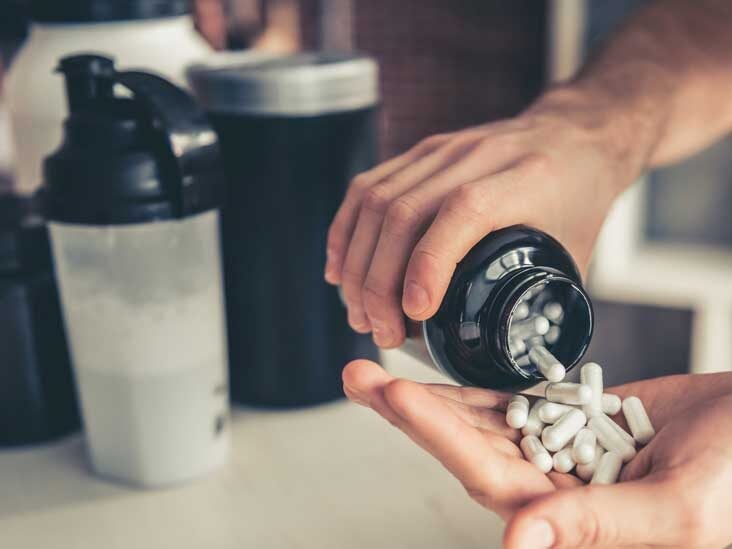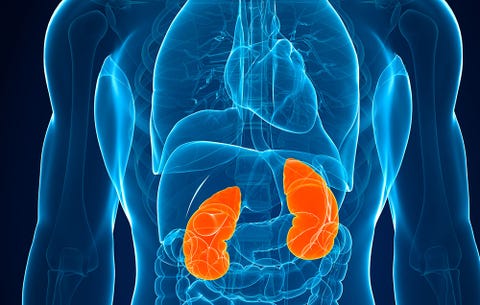The question on many people’s minds is whether or not creatine can be classified as a steroid. Some have classified creatine as an anabolic steroid, but there is no official distinction from the federal government. Creatine may be marketed as a “miracle” drug or “steroid.” However, is it? The short answer: no. Creatine is not a steroid because it does not make your muscles grow larger like steroids do.
This article will look at what creatine is, how it works, and the controversy surrounding whether or not it should be labeled as a steroid.
What Is Creatine?

Creatine is a natural additive that our bodies produce and may also be found in several foods such as fish and meat. Creatine is more effective when used as a supplement because, essentially, the body only contains half of it (80-130 grams).
Creatine supplement has been established to have enough benefits, including muscle mass, weight gain, and strength. Athletes need this substance for training and other heavy lifting activities.
The role of creatine is to produce energy to the muscle cells with the help of kidneys and the liver. Athletes who participate in baseball, football, weight lifting, and other intense sports that need enough energy greatly benefit from creatine supplements.
Their performance dramatically improves as well as their general health. In addition, the supplement immensely improves brain functioning increasing creatine phosphate to the brain.
What Is a Steroid?
A steroid is a substance that contains hormones. These hormones are chemicals that help regulate the body’s growth and development. Many substances, such as caffeine and alcohol contain low levels of these hormones. Still, they are not classified as steroids because they do not have the same effects as steroids.
In other words, steroids are artificial by-products of the hormone testosterone found in men.
Steroids have been used since the early ’70s. However, athletes have used this drug since the 1950s during the Olympic games when the Cold War.
Athletes and other sports personnel have been banned from using steroids because they lead to unfair results and eventually cause long-term effects on the body. The users abuse steroids by combing different types: the mixture is known as stacking.
Differences between Steroids and Creatine
For professional bodybuilding, weight lifting, and other energy sports, creatine and steroids are unavoidable supplements. Several amateur athletes are introduced to these two to achieve results while exercising.
Steroids and creatine improve strength, performance, and muscle mass; however, they are entirely different elements manufactured differently for various purposes.
The key differences are listed below:
- Action Mechanism
Creatine is naturally found in the human body and is one of the ways the human organism stores energy. Creatine depots are primarily found in the muscles and the brain. Creatine can quickly be mobilized and used to replenish the primary energy source that human cells use to function (adenosine triphosphate – ATP).
The amount of creatine found naturally in the body is limited, but it can be significantly increased through supplementation. The increase of creatine provides more energy resources and the ability to train at a higher intensity for a more extended period.
On the other hand, steroids are analogs of the male sex hormone testosterone. They exert their action by binding to specific receptors found inside human cells. This promotes the formation of complex molecules such as proteins, which are the most critical components of the muscles.
When combined with exercise, anabolic steroids can provide muscle growth that exercises alone cannot.
- Administration Types and Methods
Creatine monohydrate is the most common form of creatine found in supplements because it increases bioavailability. Creatine powders are available from most manufacturers and can be diluted in water or other fluid.
On the other hand, steroids can be taken orally, but they can also be subcutaneously injected (right beneath the skin). Many people believe that taking steroids orally is safer, but this is not the case.
Because everything consumed orally must pass through the liver, steroids may cause liver damage. Because subcutaneous administration prevents steroids from passing through the liver, it is a safer method.
- Muscle Building Effects
Creatine’s effects on muscle building are not guaranteed simply by taking the supplement. It is critical to perform weight training to increase muscle mass. Creatine only raises your energy capacity to help you keep up with a more intense workout.
On the other hand, steroids have been shown in studies to increase muscle mass even in the absence of exercise. Of course, without a dedicated workout plan, no significant results can be obtained. It is important to note that anabolic steroids will not help you lose weight if you are overweight.
Indeed, as previously stated, steroids increase the production of most complex molecules, including fats.
- Concerns about Safety
When it comes to safety, creatine, in the right dosage, has little-to-no adverse effects on users. Its side effects include nausea, stomach ache, and muscle cramps. Still, these are temporary and disappear once the supplement is stopped.
Because anabolic steroids are essentially hormones, they have a significant impact on many physiological processes in the human body.
Prolonged use of testosterone analogs reduces endogenous testosterone production in the testicles, resulting in a lack of this hormone after stopping the supplement. Steroids should not be used by people who have heart problems or prostate enlargement because they can exacerbate these and other conditions.
5 Reasons Why Creatine Is Not a Steroid
- Creatine is not a steroid because it doesn’t have anabolic properties
Creatine does not have the anabolic effects commonly associated with steroids. While creatine increases muscle size, it does not change muscle fiber type, as steroids do. Creatine also doesn’t promote the actual growth of muscle fibers like steroids do, which is why experts say it’s not a steroid.
Furthermore, while steroids are banned by most sporting organizations, creatine is not. This means that athletes in sports sanctioned by these types of organizations can take creatine without worrying about being penalized or disqualified.
- Creatine is not a steroid because it does not promote muscle tissue growth
A common misconception is that creatine increases muscle mass by promoting protein synthesis. However, creatine supplementation does not increase protein synthesis or protein degradation rates. It may increase the water content of muscles and the volume of distribution of muscle fibers, but this does not lead to greater muscle growth.
Creatine is a naturally occurring amino acid that has been shown to have numerous health benefits, including improving brain function, reducing fatigue and increasing muscle strength.
- Creatine is not a steroid because it does not increase testosterone levels in the body
Creatine is not a steroid because it does not increase testosterone levels in the body. Research has shown that while creatine supplementation can increase muscle mass, it does not affect testosterone levels. This means that creatine does not have the same anabolic effect as steroids.
- Creatine is not a steroid because its effects are temporary
The effects of creatine are temporary, unlike steroids that can cause permanent changes to muscles.
Creatine is processed by the liver and broken down as soon as it enters the bloodstream. It does not have any effect on muscle size after it is consumed. In fact, some studies have shown that creatine actually decreases body fat and promotes muscle growth.
- Creatine is not a steroid because it does not increase aggression
Research has shown that creatine supplementation does not cause any increase in aggression, unlike steroids. Creatine is simply a supplement that supplies your body with the chemicals it needs to make more energy.
Athletes taking steroids experience a boost in energy and much stronger feelings of euphoria during exercise. Still, these feelings are not related to the actual physical effects of the steroids themselves. On the other hand, creatine increases overall ATP production, leading to better muscle performance and increased well-being.
Does Creatine Pose Any Health Risk?

Supplementing with creatine is entirely risk-free. The chemical is distributed throughout the body, with our muscles storing the vast majority of it.
Many people believe that creatine mimics the effects of anabolic steroids. On the other hand, the Olympics forbid steroids since they imitate testosterone, but creatine does not.
Creatine is permitted by professional sports leagues, the International Olympic Committee, and the National Collegiate Athletic Association, but not by the NCAA. Creatine is not only synthesized by the body from amino acids but it may also be found in fish and red meat.
Naturally occurring creatine levels in our bodies are often insufficient to maximize the compound’s storage capacity in our muscles. Creatine supplements can boost these reserves to an average of between 140 and 150 mmol/kg.
Our muscles’ ability to produce more energy and function better is aided by the creatine stored in the muscles. The body excretes creatinine, a creatine by-product, in urine as soon as the muscles’ creatine stores have been filled.
The Effects of Creatine on the Body

Besides being beneficial for weight gain and the development of lean muscle mass, creatine can boost general health and sports performance in several ways.
For example, the principal function of creatine during strenuous activity is to increase the amount of creatine phosphate available in the muscle. Additional stores are then used to generate more ATP (adenosine triphosphate), the energy currency stored in our muscle cells, and the sole energy currency that the body accepts as acceptable. ATP is a critical source of energy for high-intensity exercise and heavy lifting.
Using creatine can provide you with a variety of advantages, including:
- Physical Strength and Exercise Capacity
Creatine helps athletes gain more power, strength, and endurance during hard training sessions. In addition, research has shown that supplementing for just 28 days can improve bench-press performance by 6 percent and bike-sprinting performance by 15 percent in high-achieving athletes.
- Increasing Muscle Mass
In both the short and long term, creatine is an excellent method of increasing muscle mass. One 12-week study with weightlifters discovered that creatine enhances muscle fiber growth by 2–3 times more than training alone when compared to exercise alone. With a one-rep maximum of 3, the total body mass increased by half, and the total number of reps increased by a third. Weight Gain That Isn’t Slow
Because the increased water retention in the muscles occurs predominantly in the short term; nevertheless, over time, the body weight continues to expand, and actual muscles grow. The weight gain is not due to fat accumulation but rather to muscle growth, which is a beneficial adaptation for most athletes.
Impact of Creatine on the Liver and Kidney

Creatine has been shown to increase the amount of creatinine in your blood. Because creatinine is frequently measured to diagnose renal or liver disorders, many individuals have the incorrect impression that creatine is harmful to the kidneys and liver.
Fortunately, numerous studies have demonstrated that long-term use of creatine has no adverse side effects. One of the investigations even extended for four years and came to the same conclusion as the others.
Even so, if you have a family history of renal illness, you should exercise caution when using creatine and sports nutrition in general. Even if you’re in perfect health, you shouldn’t take more creatine than is recommended. Always stick to the specified amount.
Steroids in Action
Steroids are used to create massive amounts of muscle in a short time or to get extremely ripped in a short time.
There are distinct differences between steroids and other drugs of abuse regarding their impact on the brain. Steroids do not directly stimulate the reward system to cause a “high.” They also do not trigger rapid increases in the brain’s dopamine, which encourages most other drug-taking behavior.
Steroid abuse can cause various mental health issues, including paranoia, irritability, violence (known as “roid anger”), delusions, impaired judgment, and mania. Steroid use can also lead to severe acne and the usual adverse effects on the mind. The hands and feet, in particular, swell as a result of this condition.
Many health concerns, including kidney and liver damage and tumors, enlarged heart, high blood pressure, and changes in blood cholesterol. All these side effects can increase the risk of stroke or heart attack even in young people, and increased blood clot risk may result from steroid overuse.
Frequently Asked Questions
Will taking creatine cause me to fail a drug test for steroids?
No, creatine does not cause any false positives for steroids in urine tests. It will not cause you to fail an anti-doping test for performance-enhancing drugs in sports competitions. This myth can be attributed to the fact that the name “creatine” sounds similar to the word “creatinine,” a chemical by-product of creatine metabolism.
Will taking creatine make me bulk up?
Creatine supplementation is most effective when used with exercise, which is why bodybuilders often take it before and after workouts. However, taking creatine alone will not cause you to gain weight unless you are eating more than you burned during your workout. If this is the case, your gains would be muscle mass and fat mass, which may or may not be the result you are looking for.
Does creatine make you bald?
This myth can be attributed to creatine being often used in conjunction with protein powders (used to gain mass) and insulin (used to make your body store fat). However, there is no evidence that creatine causes baldness. No studies have found a link between creatine and hair loss in men or women who take it regularly as a supplement to improve athletic performance or muscle mass gain.
Does creatine increase testosterone?
The short answer is no. Creatine does not significantly increase testosterone levels. It can have a small effect on your body’s ability to produce more androgenic hormones, including testosterone. Still, it will probably be too insignificant to notice the difference in such an individual way that you would want to use creatine due to this property.
Are there any side effects of taking creatine?
Although there have been some reports of muscle cramps, dehydration, and diarrhea. However, these are not effects that would be experienced by most people who take the supplement.
Conclusion
Creatine is a dietary supplement that has been shown to increase muscle mass and strength.
Creatine is not a steroid because it does not have anabolic properties, does not promote muscle tissue growth, does not increase testosterone levels in the body, and its effects are temporary.
What is a steroid? A steroid is a type of drug that has been shown to increase muscle mass and strength.
References
- Anabolic Steroids: https://www.webmd.com/men/anabolic-steroids
- Is Creatine a Steroid? https://totalshape.com/supplements/is-creatine-steroid/
- Steroids: https://www.nhs.uk/conditions/steroids/
- Are Steroids Worth the Risk? https://kidshealth.org/en/teens/steroids.html
- Androgenic Steroids: https://www.ncbi.nlm.nih.gov/books/NBK548931/
- Anabolic Steroids DrugFacts: https://nida.nih.gov/publications/drugfacts/anabolic-steroids
- The NCAA’s Advertising and Promotional Guidelines (2018): https://www.ncaa.com/sites/default/files/public/files/Advertising_Promotional_Standards_2019.pdf
- How does anabolic steroid misuse affect behavior? https://nida.nih.gov/publications/research-reports/steroids-other-appearance-performance-enhancing-drugs-apeds/how-does-anabolic-steroid-misuse-affect-behavior
- Can Creatine Increase Your Testosterone Levels? https://examine.com/nutrition/creatine-testosterone/















